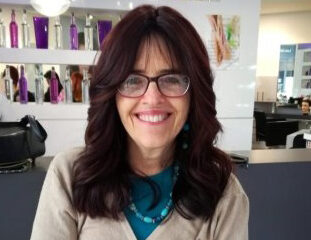
Featured Item

Disclosure critical in combatting abuse
Abuse exists in our community, and though it’s not easy to talk about it, we must expose it, Melanie Uranovsky told Limmud Cape Town last weekend.
Uranovsky, who works with Koleinu SA, an organisation that helps the victims of abuse, said no social, religious, or economic group was immune.
“One in five children will be victims of some form of unwanted touch by the age of 18,” she said, quoting from the latest child sexual abuse statistics. “It takes an average of 20 to 30 years for a victim of child sexual abuse [CSA] to disclose it. And, as many as 86% of CSA goes unreported. Ninety percent of children who are victims of sexual abuse know their abuser. Sixty percent of abusers are acquaintances, teachers, neighbours, or community leaders. Thirty percent of children are abused by immediate or extended family, and 10% of children are sexually abused by a stranger.”
“These statistics are global,” Uranovsky said. “We have no idea what the statistics are in the Jewish or South African community generally. There are probably many more cases.
“In the Jewish community, it’s hard for people to come forward because we have this DNA, this shemzach [shame], that we mustn’t tell anybody,” she said. “So, when it takes a [non-Jewish] woman one to seven years to talk about the fact that she was abused, it takes a Jewish woman seven to 15 years.”
“The police aren’t trained to take in people who walk in off the street and report sexual abuse,” Uranovsky said. “They will ask, ‘What did you do that made him abuse you? Did you wear your skirt too short? Were you exposing your shoulders? Were you drunk? Did you come onto him?’”
The way one responds to disclosure is important, she said. “You have to praise them and thank them for doing so. You need to tell them that you believe them, and that it’s not their fault.
“You should encourage them to talk more by asking open-ended questions like, ‘What happened next?’ rather than leading questions like ‘Where did he put his hand?’”
In front of a child, you cannot show anger towards the perpetrator, as that may stop the child from saying more. You also need to assure the child that it’s your responsibility to protect them. If a child under 18 tells you that they have been sexually abused, you must report it. Everyone over 18 is a mandatory reporter.”
To report abuse, call the helplines below.
Cape Town: 074 180 5687; Johannesburg: 011 264 0341; Email: koleinusa@gmail.com; Monday to Thursday: 19:00 to 22:00, Friday: 09:00 to 15:00
For after-hours reports, call the Chai Helpline: 0800 24 24 36.










